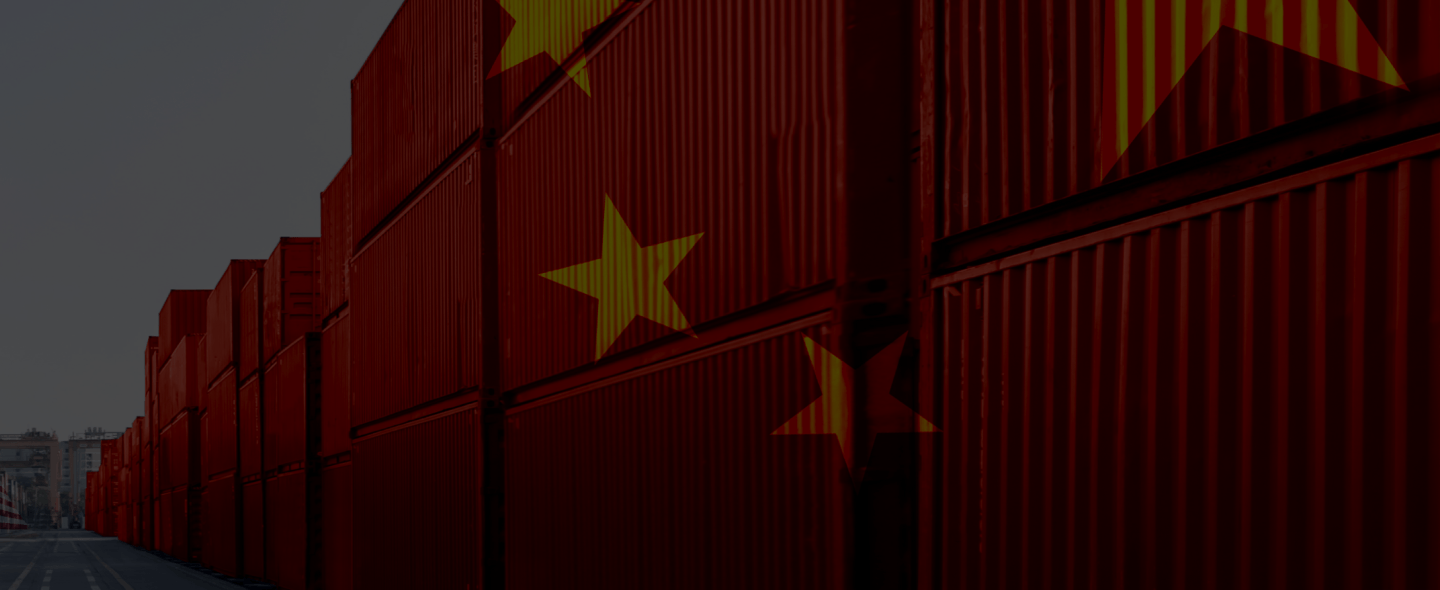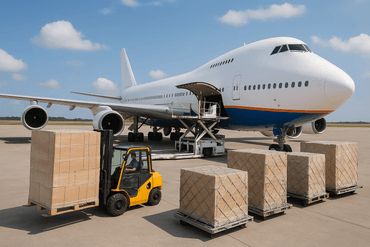
Shipping to China - Tips & Process



Despite the current incertitude surrounding trade relations between the United States and China, the Asian giant continues to be the biggest importer of US goods on the other side of the Pacific Ocean.
China is responsible for 11 percent of the total value of US exports.
This may not seem like much, but is certainly impressive when considering that its neighbors, Japan and South Korea, are responsible for just 5.3 percent and 3.9 percent of US exports respectively — their combined total still less than China’s share.
The most exported product categories from the US to China include transportation (21 percent), machines (19 percent), and vegetable products (11 percent). Here’s a breakdown of each category.
Transportation
Planes, helicopters, and/or spacecraft: $13.4 billion (10% of total US exports to China)
- Cars: $11.5 billion (8.7%)
- Vehicle parts: $2.08 billion (1.6%)
- Aircraft parts: $686 million (0.51%)
- Delivery trucks: $145 million (0.11%)
Machines
- Integrated circuits: $7.75 billion (5.8%)
- Gas turbines: $1.85 billion (1.4%)
- Machinery having individual functions: $1.57 billion (1.2%)
- Valves: $1.02 billion (0.76%)
- Computers: $758 million (0.57%)
Vegetable products
- Soy beans: $12.4 billion (9.3%)
- Sorghum: $849 million (0.64%)
- Wheat: $485 million (0.36%)
- Forage crops: $388 million (0.29%)
- Other nuts: $281 million (0.21%)
Shipping to China tips
As a booming economy, there are certainly plenty of business opportunities in China. However, there are certain aspects of shipping to China that you should keep in mind to ensure a seamless shipping process.
1. Stay up to date with trade war developments
With the ongoing US-China trade war and its fluctuating indications of how it will turn out, it’s important to keep an eye on the news. This will allow you to anticipate any increases in duties and allow you to better prepare for them.
The tit-for-tat tariff increases have been problematic for shippers on both sides of the equation. And even though tariff increases may not on the products you’re looking to ship to China and not affect you directly, it may impact shipping capacity and rates, which will affect your supply chain directly.
2. Check your calendar
If you’re an unseasoned shipper, it may interest you to know that there are two whole weeks out of the entire calendar year where port and logistical activities in China come to a near-complete standstill.
These are known as the Golden Weeks. The first takes place at the beginning of the year, typically in January or February, in celebration of the Lunar New Year. The second Golden Week commemorates China’s national day and takes place in the first week of October.
During this time, it’s impossible to get shipments in or out of the country. Note that the weeks leading up to and following the Golden Week may also prove to be problematic, given the rush for imports and exports before the country shuts down, and the time needed to recover after operations resume.
3. Get familiar with Special Economic Zones
There are currently 12 Special Economic Zones (SEZ) in China to which US exporters, if not already doing so, should be taking advantage of it as doing business in China can prove to be particularly complicated.
These special zones allow goods to be handled (stored, manufactured, re-exported) without the need to pay import duties and taxes and were established by the Chinese government as part of its reforms to open up the Chinese economy. It also speeds up the customs clearance process, which adds more flexibility to your supply chain.
Additionally, most of these SEZs are located along the coast to facilitate the movement of goods to and from China’s many shipping ports.
4. Work with a freight forwarder
Trying to navigate Chinese import rules and regulations can be pretty frustrating, especially if you’re not familiar with the language. It also doesn’t help that information can be pretty conflicting depending on where you obtain it from.
To avoid complications, we recommend always booking your ocean freight services to China through a reputable freight forwarder who has experience and a proven track record of the particular shipping route you’re interested in.
Not only will they be able to properly guide you through the import regulations specific to China, but they can also advise you on prohibited items and help you with the paperwork needed to avoid problems at customs.
5. Check if your cargo requires CCC
The China Compulsory Certification (CCC) mark, as its name suggests, is a mandatory certification for products in over 132 categories (including motor vehicle parts, medical devices, electrical apparatus, etc.) being imported into China.
The CCC mark is China’s way of quality control and it is estimated that one-fifth of all US exports to China are required to obtain the CCC mark. Any missing CCC marks will likely lead to goods being detained by customs authorities or returned to the shipper at origin and heavy penalties.
Before exporting, make the effort to check whether your cargo requires CCC. Note that the application for a CCC mark can take up to 90 days or more to process.
Additionally, always remember that no matter where you’re shipping to, if you’re dealing with hazardous materials, there are certain steps you absolutely must take.
Related Articles


